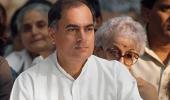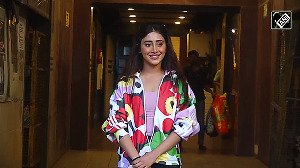'Of all the PMs of India, I had the closest relationships with Morarji and Rajiv.'
Mark Tully, the most famous foreign correspondent in India, remembers some encounters with prime ministers, dictators and militants.

"The BBC director general asked Indira Gandhi, 'Madam PM, what did you feel when you lost the people's confidence?' (when she lost the Lok Sabha election after the Emergency)."
"She smiled and said: 'Director General, I never lost the confidence of the people, they were just misled by rumours, many of them spread by the BBC'."
Mark Tully, the BBC's correspondent in India for nearly 40 years, was in Mumbai last month for the Times Literature Festival.
In conversation with Radio Jockey Hrishi K, Sir Mark charmed a packed audience at the Mehboob Studios with his personal insights into famous personalities he met on the job. Archana Masih/Rediff.com listened in.

Morarji Desai
"We wanted to make a film and the ministry of external affairs spokesmen told me that 'You are not making this film.'
I asked why? He said, 'We're not having you take the piss out of my prime minister!'
I respected Morarji as PM and I knew my reputation as a journalist would be in shambles if I didn't ask him about urine drinking.
I did and he answered superbly.
The first thing he asked was how do he look.
I looked at him and said, 'I think you look rather better than I do. He was over 80 and had beautiful translucent skin. He was immaculately dressed in crisp khadi, sitting bolt upright. I was not that well dressed, was slouched and 40 years younger than him.
He said he never hid it and that he had written a book about it -- and now that he was PM more people were reading about it.
I was very fond of Morarji."

Rajiv Gandhi
"Of all the prime ministers of India, I had the closest relationships with Morarji and Rajiv.
In 1989 Rajiv began his election from Faizabad. He said he was going to bring Ram Rajya. I immediately filed the story that I knew would damage him, but I had to do it because he had played the Hindu card. But that didn't diminish my affection for him.
After the 1989 election defeat many Congressmen said that the BBC factor went against us.
Rajiv rang me and asked me to see him and said he did not personally believe about the BBC factor."
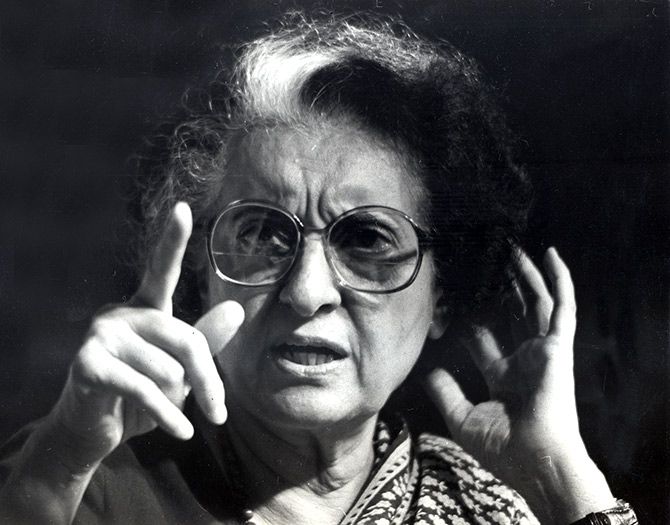
Indira Gandhi
"The first BBC director general I took to meet her, she wasn't interested and was tapping her pencil on paper.
I said, 'Thank you very much for your time madam, I think we should go.'
The director general said thank you to me because he could make out that she wasn't interested in the meeting.
The next person (BBC director general) happened to be born in Kanpur and said with great delight that he had been born in Kanpur.
She looked at him and said, 'Oh so it's a qualification to work for the BBC that you should be born in India!'
The famous series Yes Minister was going on in Britain. She told him I am meeting you because I have a special request.
He said 'What?'
She said 'Doordarshan tells me that you are asking a ridiculous sum of money for it which I want to run on Indian TV to teach my ministers how to behave and how not to behave.'
So the director general came back to my office, rang up the man who controlled film sales and said to give it at whatever price."
Jarnail Singh Bhindranwale
"He was a frightening man to meet, had staring eyes, spoke very sparingly and aggressively. He was always surrounded by people.
Once I was sitting on the roof of the langar (in the Golden Temple) with my feet stretched out and General Shabeg Singh (the Indian Army lieutenant general who joined the Khalistan movement after his dismissal from the army) who was also a terrifying man shouted at me, 'Your feet are touching Guruji's sword.' I pulled my feet back quickly.
Zia-ul Haq
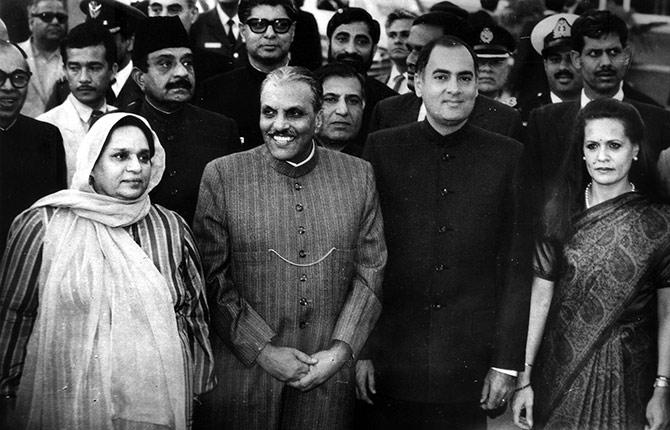
"I went to see General Zia's spokesperson Sadiq Salik for a briefing and he kept on saying 'Sit down' and I said I had to go.
Then he suddenly said 'You can go.'
I said 'What is this about, Saliksahab?'
He said 'You are sitting right above General Zia's office, to get out of this building, you have to go past the door of his office.'
'During this hour General Zia comes out to say his prayers in the corridor and if you see him prostrate in prayer you might kick him in the ass!'
Poor Salik died in the aeroplane with Zia."
Margaret Thatcher
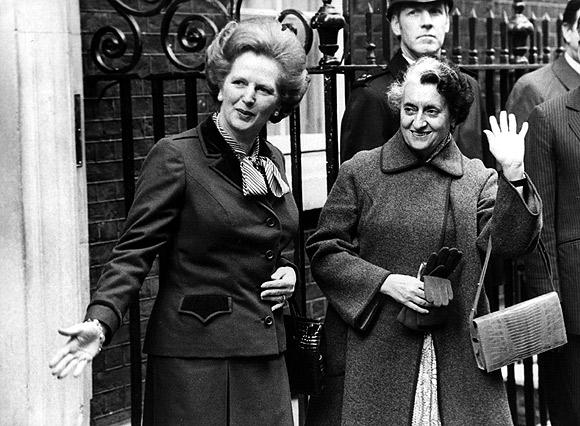
"I met Maggie 2-3 times. Once we were standing at the bottom of the Khyber Pass in Pakistan. She had been taken there to see Afghanistan from there because Pakistan was wanting her support over the refugees.
I went up to her and asked an idiotic journalistic question like 'How do you feel now that you are on the border of Afghanistan?'
She turned to me and said 'I don't have time for people like you, I'm busy caring about people out there.'
So that put me in my place."
How he was 'arrested' by kar sevaks after the Babri Masjid demolition
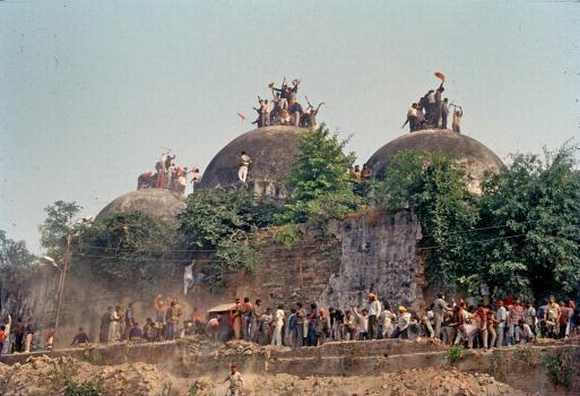
After the demolition, Mark Tully drove to Faizabad to file his report as telephone lines in Ayodhya were cut. On his return, he and a few Hindi language journalists were threatened and locked in a room by kar sevaks.
"We were let out luckily. News of us being 'arrested' spread and a very good local official -- the only one I think who stayed at the spot -- went to see the mahant of another temple and told him that these people must be let out.
I was with a team of journalists from the Jagran. The kar sevaks said they had nothing against them, only against this man from the BBC, but they (the Dainik Jagran journalists) insisted on being arrested with me."
Fake news existed even in the 1980s
Post Indira Gandhi's assassination there were these exaggerated stories of Sikhs rejoicing at her death. A senior official insisted that a train from Punjab had arrived at Sahibabad near Delhi with hundreds of dead bodies on it.
Instead of writing or putting out a story, Mark Tully sent a journalist there and found out that there was no truth to that 'story'.
How fake news should be combated
"I said then and I say now that rumours are a very effective way of spreading fake news.
The phenomenon of fake news has been there for a very long time. You have to use your judgment.
I will give you personal example: 3-4 dispatches purportedly written by me have been circulated widely on the Internet and some saying that we must say 'Long Live Narendra Modi' or some extremely offensive things about Sonia Gandhi.
My view is that people should use their judgment."
When Indira Gandhi's government ordered him to leave the country after the Emergency was imposed, and how the BBC continued its reportage of India
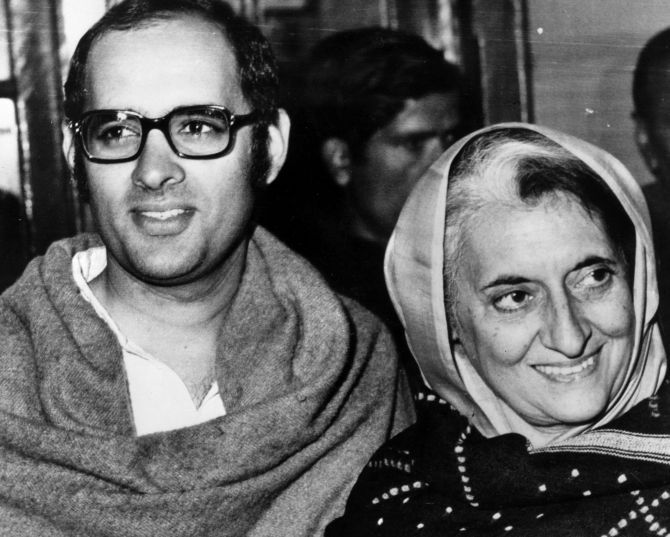
"We had the Eastern Service of the BBC, we had Hindi, Urdu, Bengali -- basically, we were constantly ringing journalists active in India.
The fact remains that our credibility was still intact at the end of the Emergency although there was censorship and I had been expelled.




